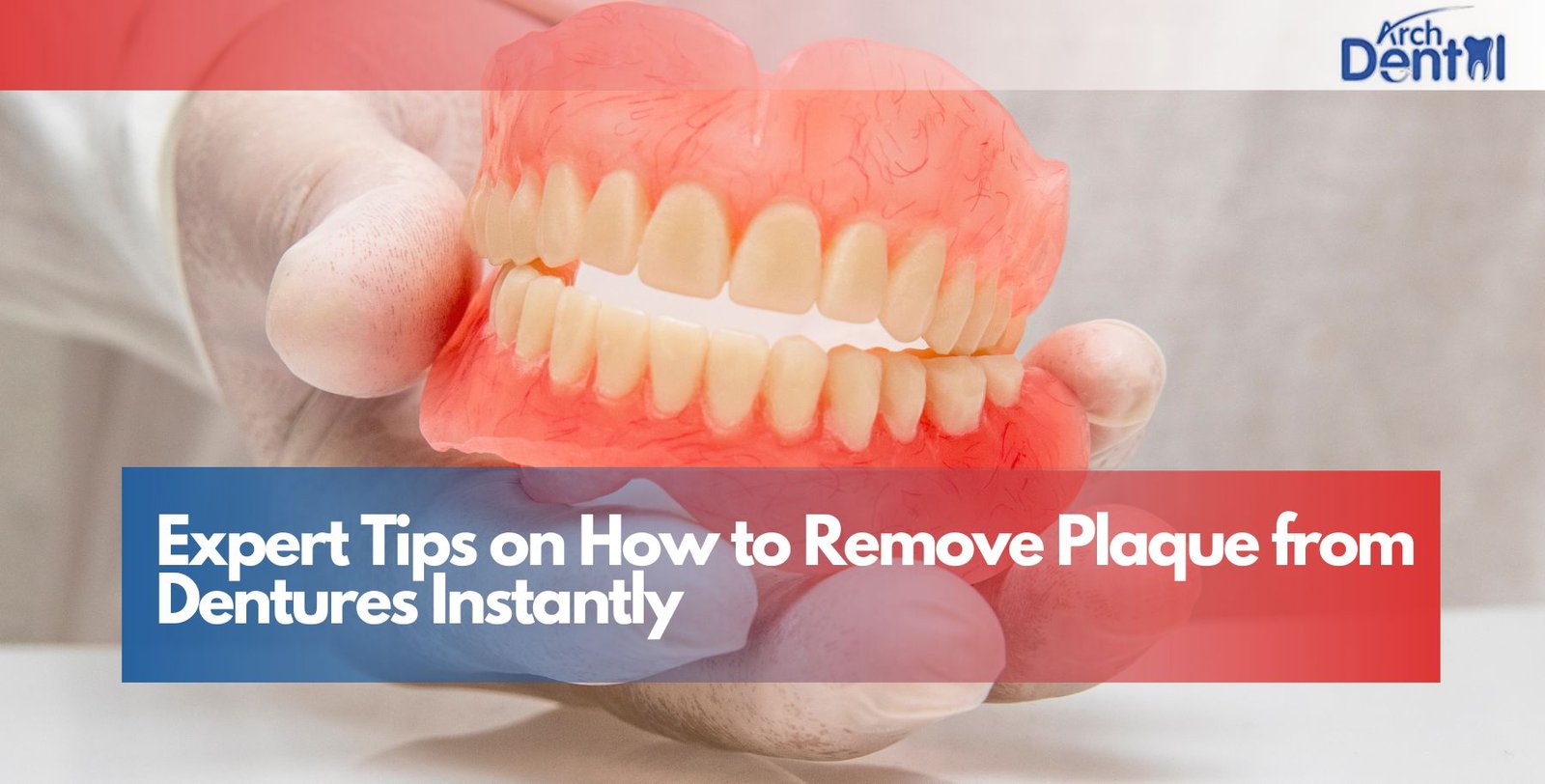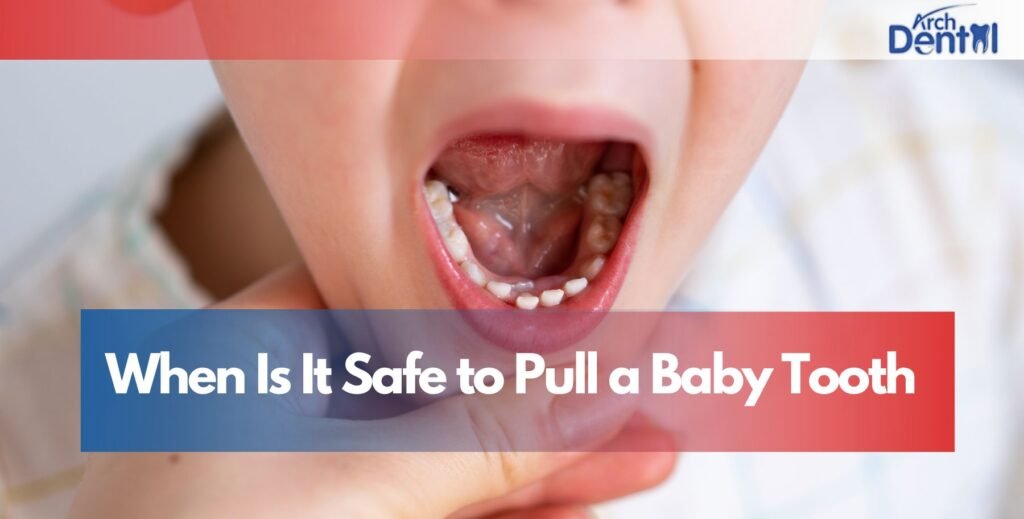Keeping dentures clean isn’t just about a bright smile it’s about maintaining oral health, preventing infections, and avoiding bad breath. Over time, plaque and tartar can build up on dentures the same way they do on natural teeth, leading to discomfort, gum irritation, and even fungal infections.
Whether you’re new to dentures or have been using them for years, learning how to remove plaque from dentures instantly can make a big difference in your confidence and comfort. This guide shares expert dental insights, easy home methods, and professional advice from your local Northampton dentist to keep your dentures spotless and fresh every day.
Understanding Plaque
Before you can remove plaque effectively, it’s important to understand what it is and how it forms on dentures.
What Is Plaque and Why Does It Form?
Plaque is a soft, sticky film made up of food particles, saliva, and bacteria. It forms naturally after eating or drinking and clings to both natural teeth and dentures.
When plaque isn’t cleaned properly, it hardens into tartar (calculus), which is much more difficult to remove without professional help. Even though dentures are artificial, bacteria and food debris can still adhere to their surface, leading to the same oral problems that affect natural teeth.
Why Dentures Are Prone to Plaque Buildup
Unlike natural enamel, dentures are made from acrylic resin or metal alloys. These materials have microscopic pores that can trap bacteria and food particles. If dentures aren’t cleaned daily, plaque turns into a rough film that causes odor, discoloration, and even oral infections.
Why Should Plaque Be Removed Instantly?
Leaving plaque on dentures for too long can cause more than cosmetic issues it can harm your mouth’s overall health.
Prevent Bad Breath and Odor
Plaque harbors bacteria that produce unpleasant smells. Regular cleaning removes odor-causing buildup and keeps your breath fresh throughout the day.
Protect Gum Health
Bacteria in plaque can irritate the soft tissues in your mouth, leading to gum inflammation, soreness, and even infections like denture stomatitis.
Prevent Tartar Formation
If not removed promptly, plaque hardens into tartar, which bonds tightly to the denture surface and requires professional cleaning to remove.
Maintain a Bright, Natural Look
Plaque causes yellowing and dullness on dentures. Removing it instantly helps preserve your denture’s color, keeping your smile bright and natural-looking.
Improve Comfort and Fit
A clean denture fits better. Plaque buildup can create uneven surfaces, making dentures feel rough and uncomfortable.
How to Remove Plaque from Dentures Easily
You don’t need expensive products to keep dentures plaque-free. A combination of daily care and simple techniques can make them look new again.
Use a Soft Denture Brush
Gently brush your dentures using a soft-bristled toothbrush or a brush made specifically for dentures. Avoid regular toothpaste, as it can scratch the surface. Instead, use a mild soap or denture cleaner.
Soak in Denture Cleaner Daily
Commercial denture cleansers (like Efferdent or Polident) contain effervescent agents that break down plaque, stains, and bacteria. Soak dentures for 15–20 minutes daily to dissolve buildup instantly.
Try White Vinegar for Stubborn Plaque
For natural cleaning, soak dentures overnight in a solution of equal parts white vinegar and warm water. Vinegar’s acidity helps dissolve tartar without damaging the material.
Use Baking Soda Paste
Mix baking soda with a few drops of water to create a mild abrasive paste. Gently scrub dentures to remove stubborn residue and neutralize odors.
Rinse After Every Meal
Rinsing dentures immediately after eating prevents food debris from hardening into plaque. Always use lukewarm water hot water can warp your dentures.
Professional Cleaning at Your Dentist’s Office
For deep cleaning and maintenance, visit your Northampton dentist every six months. Dentists use ultrasonic cleaners that remove hardened tartar without damaging the material.
Home Remedies for Instant Plaque Removal
While professional care is best for severe buildup, you can remove mild plaque at home quickly and safely using simple ingredients.
Hydrogen Peroxide Solution
Hydrogen peroxide has antibacterial properties that dissolve plaque. Mix equal parts peroxide and warm water and soak dentures for 10–15 minutes. Rinse thoroughly before wearing them again.
Lemon Juice Rinse
Lemon juice can help remove stains and brighten dentures. However, limit use to once a week to avoid surface erosion.
Saltwater Soak
Saltwater is a natural disinfectant. Soak dentures in a warm saltwater solution for 20 minutes daily to reduce bacteria and plaque.
Denture Cleaning Tablets
These tablets are formulated to remove plaque and bacteria instantly. Drop one into a cup of water, add your dentures, and let them soak according to the instructions.
Can Plaque Be Avoided Altogether?
While plaque formation is natural, consistent care can prevent it from accumulating.
Daily Cleaning Routine
- Brush dentures twice a day with a soft brush and non-abrasive cleaner.
- Rinse after every meal to prevent food buildup.
- Remove dentures at night and soak them in a cleansing solution.
Maintain Good Oral Hygiene
Even if you wear full dentures, don’t neglect your gums, tongue, and palate. Brush them gently each morning to remove bacteria and improve circulation.
Avoid Sugary and Acidic Foods
Plaque thrives on sugars. Limit sweets, sodas, and sticky foods that cling to dentures.
Keep Dentures Moist
Dry dentures can warp and crack, making it easier for plaque to cling to rough surfaces. Always store them in water or a denture-soaking solution overnight.
The Role of Professional Dental Care in Denture Maintenance
No matter how well you clean your dentures at home, professional care ensures they remain hygienic and properly fitted.
Regular Dental Checkups
Visit your dentist at least twice a year for professional denture cleaning. They use ultrasonic devices that remove even the toughest tartar safely.
Polishing and Adjustments
Your dentist can polish the dentures’ surface to make them smoother and less likely to attract plaque. They can also adjust the fit to prevent irritation.
Oral Health Screening
Regular visits also allow your dentist to check for gum infections, sore spots, or early signs of oral cancer especially important for long-term denture wearers.
If you’re looking for reliable care and regular maintenance for Dentures in Northampton, MA, choose a trusted dental office that offers cleaning, repair, and replacement services tailored to your needs.
How to Keep Dentures Clean Overnight
Overnight care is just as crucial as daytime cleaning.
Remove and Soak Dentures Every Night
Never sleep with dentures in. Removing them gives your gums time to rest and reduces bacterial growth.
Use Denture Soaking Solutions
Soaking overnight in a denture cleanser prevents plaque buildup and kills bacteria.
Rinse Before Wearing
Always rinse dentures thoroughly before putting them back in your mouth to remove any residual cleanser.
When Should You Visit the Dentist?
Even with great home care, some issues require professional attention.
Persistent Plaque or Tartar
If plaque keeps forming despite regular cleaning, your dentist can professionally remove it.
Bad Breath or Taste
A lingering bad taste or odor may indicate bacterial buildup or fungal infection.
Loose or Uncomfortable Fit
Dentures that don’t fit properly can trap food particles and increase plaque buildup.
Visible Cracks or Roughness
Damaged dentures can harbor bacteria in small crevices. Your dentist can polish or repair them to restore smoothness.
Gum Irritation or Sores
If you notice redness, pain, or swelling in your gums, don’t delay visit your dentist immediately.
Extra Tips for Denture Care and Plaque Prevention
Keep dentures clean with daily brushing, gentle soaking, and proper storage. Rinse after meals, avoid harsh products, and visit your dentist regularly to prevent plaque buildup.
Keep a Separate Toothbrush for Dentures
Use a dedicated denture brush to avoid cross-contamination with natural teeth or gums.
Avoid Hot Water and Harsh Chemicals
Hot water can warp dentures, while bleach and harsh cleaners can damage their structure.
Store Properly When Not in Use
Keep dentures moist in clean water or a denture solution. Avoid wrapping them in tissues or leaving them dry.
Clean Denture Adhesive Residue
If you use adhesives, clean any leftover material daily. Leftover adhesive can trap plaque and bacteria.
Maintain Overall Oral Hygiene
Clean your tongue, cheeks, and gums every day to minimize bacteria and keep your mouth fresh.
Conclusion
Learning how to remove plaque from dentures instantly is about consistency and care. Regular brushing, soaking, and rinsing prevent buildup and keep your dentures comfortable and long-lasting. Combine daily cleaning with professional dental checkups to ensure your dentures remain healthy, odor-free, and beautiful.
Whether you’re using complete or partial dentures, professional guidance ensures proper hygiene and fit. For expert care and regular maintenance, visit your trusted northampton dentist for professional cleaning and personalized advice to keep your dentures in top condition.
With the right care, your dentures can look and feel as fresh as the day you got them giving you every reason to smile confidently.
FAQs
How do I remove plaque from dentures instantly?
Soak dentures in a mix of warm water and vinegar or use a denture cleaning tablet for 15 minutes, then brush with a soft denture brush to remove plaque instantly.
Can I use toothpaste to clean my dentures?
No. Toothpaste is abrasive and can scratch denture surfaces, making plaque buildup worse. Use a non-abrasive denture cleaner or mild soap instead.
How often should I clean my dentures?
Clean dentures daily brush and soak them every night before bed. This prevents plaque, tartar, and bad breath.
What causes plaque to form on dentures?
Plaque forms from bacteria, food particles, and saliva. Without proper cleaning, it hardens into tartar and can cause gum irritation or bad breath.
When should I replace my dentures?
Most dentures last 5–7 years before needing replacement due to wear, fit changes, or discoloration. Your dentist can guide you based on your oral health.
Can I prevent plaque completely?
Not entirely, but daily cleaning, rinsing after meals, and regular dental visits can significantly reduce plaque buildup and keep dentures fresh.





